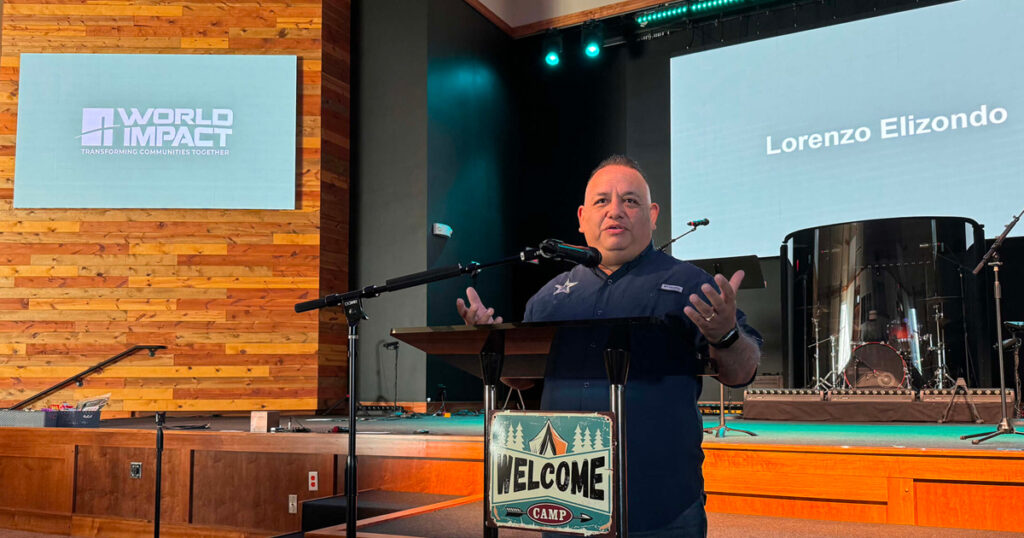
While the folks whom pastors serve and minister often fail to recognize it, pastors and ministry leaders have a variety of responsibilities on a day-to-day and week-to-week basis.
The Average Day for an Urban Pastor
On any given day, a pastor might prepare part of a Sunday message, preside over a funeral service, attend a youth sports activity, visit a sick church member, counsel an engaged couple in their church or family, or work toward a higher academic degree.
This is especially true of pastors in communities experiencing poverty and heavy brokenness, because most of these leaders must work part- or full-time jobs in addition to their ministry responsibilities.
World Impact is blessed to have staff members who have experienced these ministry settings first-hand for many years.

Lorenzo Elizondo serves World Impact as a ministry developer, and he serves as pastor of LifePoint Church in the south Dallas neighborhood of Oak Cliff.
So where should urban pastors focus their time for ministry success?
Elizondo breaks pastoral ministry into four categories:
- Character
- Spiritual and Theological Diligence
- Ability to Shepherd
- Administrative Duties
Character
- A pastor’s character is vital to their ministry and effectiveness
- A pastor must live out the Word of God in everyday life, providing a living example for community members to “see and praise God” (reference)
- Humility allows a pastor to trust the Lord and other leaders
Spiritual and Theological Diligence
- It is a pastor’s duty to study the Scriptures and exercise communion with Christ regularly
- A pastor must teach or preach God’s Word with conviction and passion
Related Post: A Beacon of Hope: LifePoint Church Helps Their Underserved Community Flourish
Ability to Shepherd
- A pastor works to be a comforting presence during difficult circumstances
- Shepherding includes providing counsel to individuals of all ages
- Most of this occurs outside church walls and “work hours”
Administrative Duties
- It is important for pastors to empower others in areas of weakness—this often includes administrative responsibilities
- Staying faithful to Christ with church finances and operations is part of a pastor’s and church’s testimony to their community
An additional point that Elizondo emphasizes for pastors involves remembering the nature of their congregation and the surrounding community.
The community’s history, interests, demographics, struggles, strengths, and experiences all play a role in the relationship between the community and the church/pastor.
Elizondo encourages pastors to avoid the copy-paste strategy from other churches or pastors.
Elizondo shared, “A lot of churches sometimes, we hear things at conferences or trainings or read them in a book that are brilliant ideas, and we’re just borrowing those ideas…and not actually asking the question ‘What does my neighborhood actually need?’”
If you’re a pastor, does the above list describe you, your relationship with Christ, and the ministry you oversee?
Are there areas where you need additional training or should train someone to take your place?
The work you are doing is incredibly valuable to your community, and World Impact is here to support and encourage you.
If you would like to empower and equip urban pastors like Elizondo, we encourage you to donate to bring training and resources to build healthier churches.
